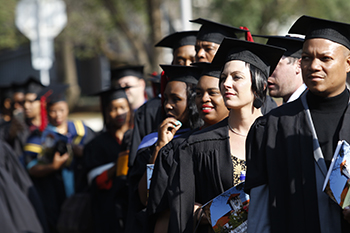Latest News Archive
Please select Category, Year, and then Month to display items
05 June 2018
Photo Supplied
 Archaeological excavations in the Wonderwerk Cave, north of Kuruman in the Northern Cape.
Archaeological excavations in the Wonderwerk Cave, north of Kuruman in the Northern Cape.
Research fellow Dr Lloyd Rossouw from the Department of Plant Sciences at the University of the Free State (UFS) recently published an article in the Nature Ecology and Evolution journal with Dr Michaela Ecker from the University of Toronto as lead author, and Dr James Brink, research fellow at the UFS Centre for Environmental Management. The findings described in “The palaeoecological context of the Oldowan-Acheulean in southern Africa” provides the first extensive paleoenvironmental sequence for the interior of southern Africa by applying a combination of methods for environmental reconstruction at Wonderwerk Cave, which have yielded multiple evidence of early human occupation dating back almost two million years ago.
Where water once was
The Wonderwerk Cave is found north of the Kuruman hills (situated in Northern Cape) a 140m long tube with a low ceiling. The surroundings are harsh. Semi-arid conditions allow for the survival of only hardy bushes, trees, and grasses. But during the Early Pleistocene, stepping out of the Wonderwerk Cave you would have been greeted by a completely different site, the researchers found. Using carbon and oxygen stable isotope analysis on the teeth of herbivores (Dr Ecker), fossil faunal abundance (Dr Brink), as well as the analysis of microscopic plant silica remains (phytoliths) excavated from fossil soils inside the cave (Dr Rossouw), the results show that ancient environments in the central interior of southern Africa were significantly wetter and housed a plant community unlike any other in the modern African savanna.
What difference does it make?
While East African research shows increasing aridity and the spread of summer-rainfall grasslands more than a million years ago, the results from this study indicate an interesting twist. During the same period, shifts in rainfall seasonality allowed for alternating summer and winter-rainfall grass occurrences coupled with prolonged wetlands, that remained major components of Early Pleistocene (more or less the period between one and two million years ago) environments in the central interior of southern Africa. That means our human ancestors were also living and evolving in environments other than the generally accepted open, arid grassland model.
Ferial Haffajee among graduates at Summer Graduation
2016-12-02

A total of 124 master’s, 37 doctoral degrees, and
464 undergraduate degrees are conferred on students from
all seven faculties during the Summer Graduations.
Photo: Johan Roux
Graduation is a time to celebrate and to reap the fruits of hard work. The journalist Ferial Haffajee (Humanities) will be among the 124 master’s and 37 doctoral students receiving their qualifications in all seven faculties at the Summer Graduation of the University of the Free State (UFS). At the ceremonies on 8 December 2016 in the Callie Human Centre on the Bloemfontein Campus, the university will also confer 264 Education qualifications to students from its South Campus, as well as 200 undergraduate degrees in the Faculty of Health Sciences.
Haffajee joins likes of Tutu and others
Haffajee, a renowned newspaper editor whose expertise has made her one of the most prominent journalists in South Africa, will receive an honorary doctorate at the morning ceremony. Until recently she was the editor-in-chief of City Press newspaper. She joins the likes of Desmond Tutu, and others who have received honorary doctorates at the UFS.
Earlier this year, four distinguished individuals also received honorary doctorates from the university. They were Max du Preez, Trevor Manuel, Prof Joel Samoff, and Dr Reuel Jethro Khoza. The Summer Graduation once again promises to deliver the cream of academic excellence.
Dr Rakometsi to address UFS graduates
The guest speaker at both ceremonies is Dr Mafu Rakometsi, Chief Executive Officer of Umalusi. Dr Rakometsi also serves on the board of the Council of Higher Education. He is deeply committed to see the South African education system function at an optimum level in order to give all children equal educational opportunities.
Master’s and Doctoral degrees: All faculties
Date: 8 December 2016
Place: Callie Human Centre, Bloemfontein Campus
Time: 09:00
Education qualifications – South Campus, as well as undergraduate degrees in the Faculty of Health Sciences
Date: 8 December 2016
Place: Callie Human Centre, Bloemfontein Campus
Time: 14:30